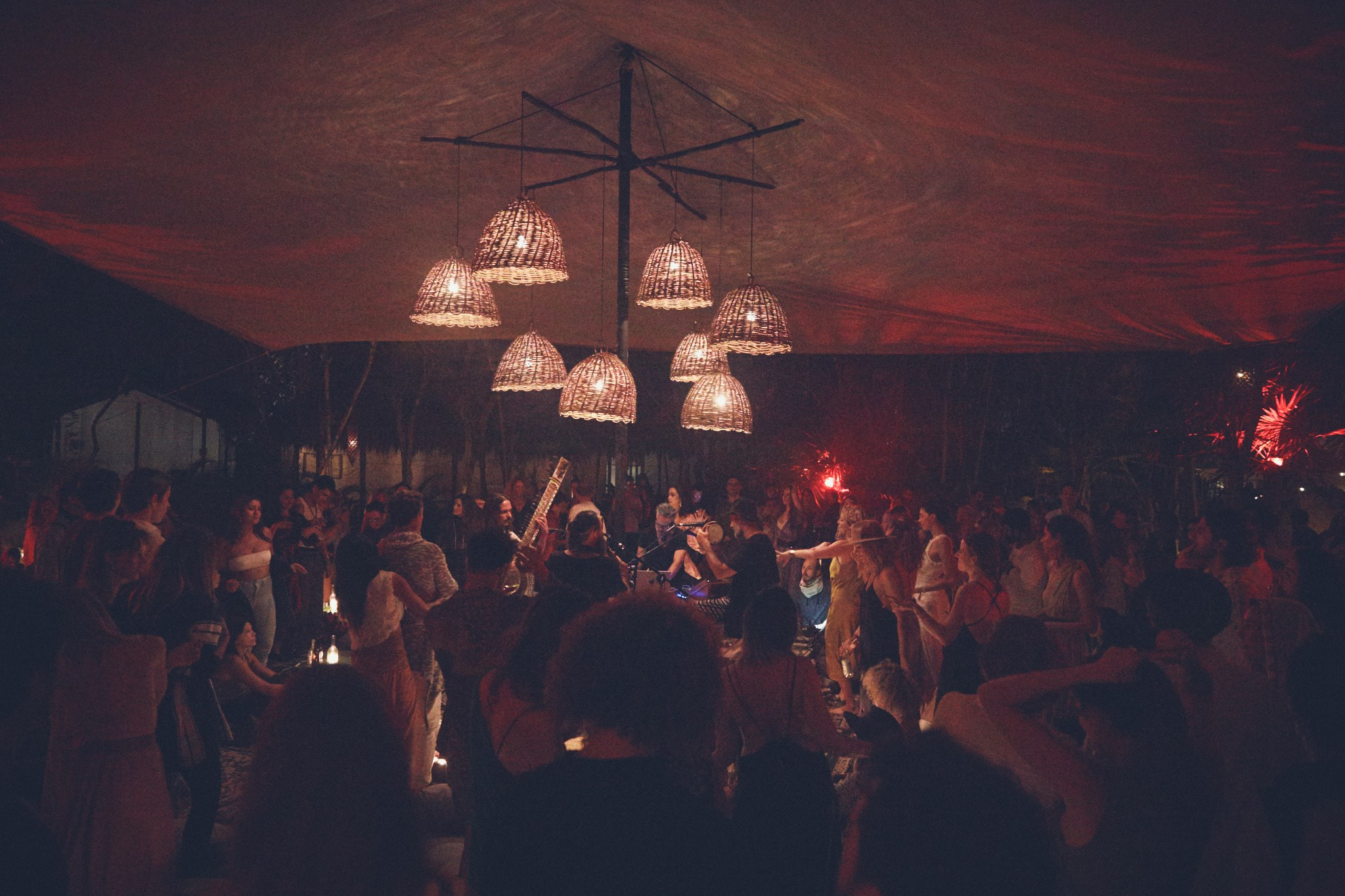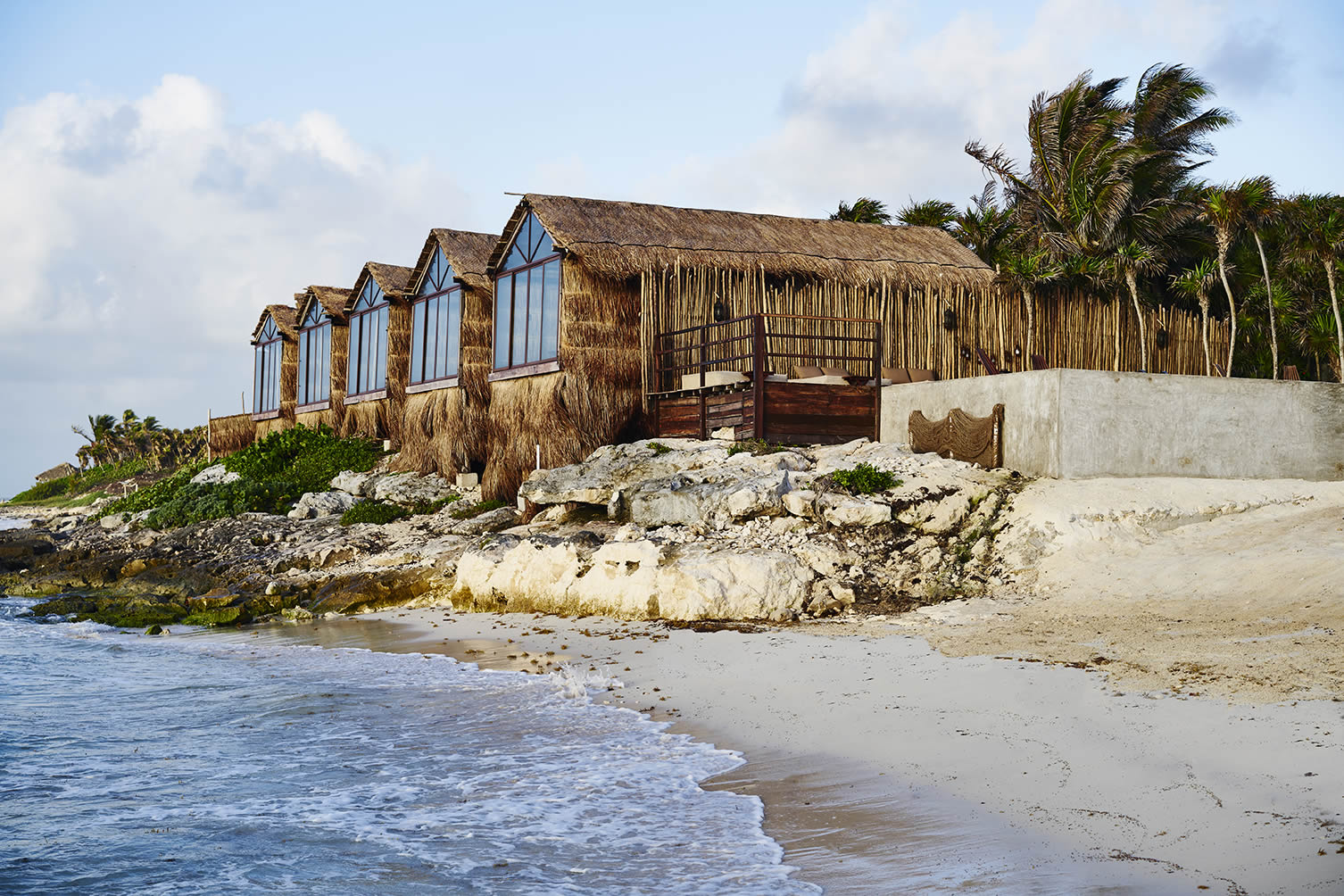Hotel management group Habitas has raised US$20 million to expand its concept of “social” beach huts. The addition of unspecified 3D printing technology has also attracted attention.
According to a recent report from the Financial Times, the supporters of the project include Uber co-founder Travis Kalanick (Travis Kalanick) and Tinder and “Brain Trust” co-founder Justin Martin (Justin Mateen), they met in the fake Bohemian hippie superstar “Burning Man”.
The Mexican resort operated by Habitas is the first step in a global perspective and will create highly praised “experience” vacations. Looking back at the marketing tools and related ambition labels, it is hard not to recall another tropical company favored by Internet celebrities, Ja Rule’s Fyre Festival.
Investor base as “brains trust”
Oliver Ripley, co-founder of Habitas said he spent six months building the investor base, expecting to act as a “brains trust” as the hotel company expands. Besides the co-founders of Uber and Tinder, Div Turakhia, the Indian ad-tech billionaire and other entrepreneurs, like Tim Steiner, chief executive of online supermarket Ocado and technology investors Maurice Salem, Shervin Pishevar, Mike Novogratz and Jonathan Teo are backing the project of Habitas.
The focus would be on millennial tourists looking for a social holiday rather than a “fancy lobby”, according to Ripley. The co-founder said the concept is
“It’s kind of like the Club Med of our generation. Incredible food, music and proper wellness experience – not the fanciest SPA but really just reconnecting.”
“Build things for the soul”
Hotel management group Habitas has built a house in Tulum, Mexico. Staying at their canvas wall beach Palapas for one night, it is said to coexist with nature and match their commitment to #stayplasticfree, costing US$200 to US$400. Ripley said that although the focus is not on the room, but on creating interpersonal interaction and emotional connection.
Ripley explained to WWD that the Habitas Hotel originated in Burning Man, where Ripley (WWD) established a camp for VIP participants. “For us really what’s important is not so much what goes inside the rooms, but what goes on outside the rooms, we’re really building something for the soul.” Tripadvisor said, therefore, the hotel holds live concerts and dances on the beach, which is very important For guests relaxing in a tent, they often feel very noisy.
“We assemble them like Lego”
In order to scale up, the founders of Habitas decided to use additive manufacturing technology to make the headlines. Ripley said that in order to build its own hotel rooms, Habitas uses the aforementioned “3D printing technology” to follow modular housing technology. The company flat packs the basic structure of the room and then transports it to the final location. According to Ripley, they can make about 100 rooms every month. The company’s co-founders expect that these hotels will be built in six to nine months and return on investment within two years.
By the end of this year, Habitas co-founder Oliver Ripley has planned to have 8 locations in his light hotel. One is in Namibia, where they will open a hotel this month. Ripley also visited Bhutan and Saudi Arabia with similar intentions, and he hopes to bring his concept to Asia, the Middle East and Africa.
3D printed houses resist the housing crisis?
The use of 3D printing technology to speed up the construction process has become a milestone in Singapore. Researchers from Nantah University and Sembcorp can print concrete bathroom units in less than 12 hours.
For sustainability considerations, the Italian 3D printer manufacturer WASP has partnered with Mario Cucinella Architects (MCA) to 3D print sustainable global habitats that can adapt to any climate. Researchers explored the causes and effects of homelessness, as well as the potential of technological advances to help achieve suitable solutions while maintaining high energy efficiency.
ICON, a Texas-based construction technology company, will reshape the construction of affordable housing by using 3D printers. The company intends to work with the non-profit organization New Story to develop solutions for the global housing crisis to solve the homelessness problem of 3D printing factories in Latin America. The first house has already been 3D printed in Tabasco, Mexico.




Leave A Comment